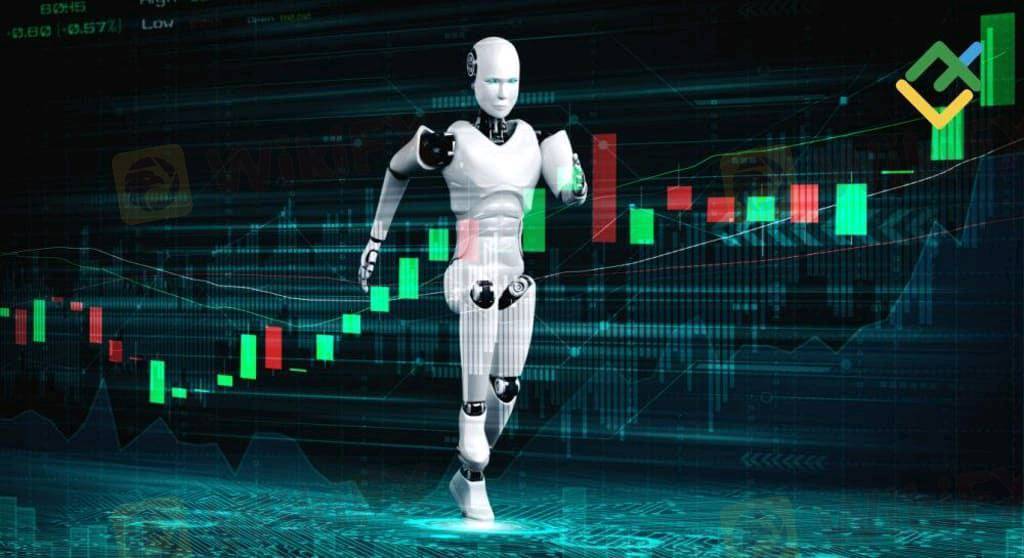
2025-03-31 12:01
In der IndustrieAl in Forex Market Dynamic TradeExecution Models
#AITradingAffectsForex
The incorporation of AI into forex market dynamic trade execution models is revolutionizing how trades are conducted. Here's a breakdown of the key aspects:
The Shift Towards Dynamic Execution
* Traditional trade execution often relies on static rules. However, the forex market is highly dynamic, requiring adaptive strategies.
* AI enables the creation of dynamic trade execution models that can adjust to real-time market conditions.
How AI Enhances Trade Execution
* Real-Time Data Analysis:
* AI algorithms can process massive volumes of real-time data, including price fluctuations, order book data, and news feeds.
* This allows for immediate identification of trading opportunities and risks.
* Adaptive Algorithms:
* Machine learning models can adapt their execution strategies based on changing market conditions.
* For example, an AI system might adjust its order placement based on real-time liquidity and volatility.
* Optimization of Execution:
* AI can optimize trade execution by minimizing slippage and maximizing fill rates.
* This is particularly important in fast-moving markets.
* Risk Management:
* AI-driven systems can monitor risk in real-time and adjust execution strategies to mitigate potential losses.
* This includes dynamically adjusting stop-loss orders and position sizes.
* High-Frequency Trading (HFT):
* AI is crucial for HFT, where speed and precision are paramount.
* AI algorithms can execute trades in milliseconds, capitalizing on fleeting market opportunities.
Key AI Techniques in Trade Execution
* Reinforcement Learning:
* This technique allows AI systems to learn optimal execution strategies through trial and error.
* The AI system receives feedback from the market and adjusts its behavior accordingly.
* Neural Networks:
* Neural networks can identify complex patterns in market data and predict short-term price movements.
* This information can be used to optimize trade execution.
* Algorithmic Trading:
* AI-powered algorithmic trading systems can automate trade execution based on predefined rules and real-time market data.
Impact and Considerations
* AI is increasing the efficiency and profitability of forex trading.
* However, it's essential to consider the risks associated with AI-driven trading, such as:
* "Black box" risks, where the AI's decision-making process is opaque.
* The potential for algorithmic errors.
* The need for robust risk management systems.
In conclusion, AI is transforming forex trade execution by enabling dynamic and adaptive strategies that can respond to the market's ever-changing nature.
Gefällt 0
meso2733
Analysator
Aktueller Inhalt
In der Industrie
Event-A comment a day,Keep rewards worthy up to$27
In der Industrie
Nigeria Event Giveaway-Win₦5000 Mobilephone Credit
In der Industrie
Nigeria Event Giveaway-Win ₦2500 MobilePhoneCredit
In der Industrie
South Africa Event-Come&Win 240ZAR Phone Credit
In der Industrie
Nigeria Event-Discuss Forex&Win2500NGN PhoneCredit
In der Industrie
[Nigeria Event]Discuss&win 2500 Naira Phone Credit
Kategorie

Plattform

Ausstellung

IB

Rekrutierung

EA

In der Industrie

Markt

Index
Al in Forex Market Dynamic TradeExecution Models
 Vereinigte Staaten | 2025-03-31 12:01
Vereinigte Staaten | 2025-03-31 12:01#AITradingAffectsForex
The incorporation of AI into forex market dynamic trade execution models is revolutionizing how trades are conducted. Here's a breakdown of the key aspects:
The Shift Towards Dynamic Execution
* Traditional trade execution often relies on static rules. However, the forex market is highly dynamic, requiring adaptive strategies.
* AI enables the creation of dynamic trade execution models that can adjust to real-time market conditions.
How AI Enhances Trade Execution
* Real-Time Data Analysis:
* AI algorithms can process massive volumes of real-time data, including price fluctuations, order book data, and news feeds.
* This allows for immediate identification of trading opportunities and risks.
* Adaptive Algorithms:
* Machine learning models can adapt their execution strategies based on changing market conditions.
* For example, an AI system might adjust its order placement based on real-time liquidity and volatility.
* Optimization of Execution:
* AI can optimize trade execution by minimizing slippage and maximizing fill rates.
* This is particularly important in fast-moving markets.
* Risk Management:
* AI-driven systems can monitor risk in real-time and adjust execution strategies to mitigate potential losses.
* This includes dynamically adjusting stop-loss orders and position sizes.
* High-Frequency Trading (HFT):
* AI is crucial for HFT, where speed and precision are paramount.
* AI algorithms can execute trades in milliseconds, capitalizing on fleeting market opportunities.
Key AI Techniques in Trade Execution
* Reinforcement Learning:
* This technique allows AI systems to learn optimal execution strategies through trial and error.
* The AI system receives feedback from the market and adjusts its behavior accordingly.
* Neural Networks:
* Neural networks can identify complex patterns in market data and predict short-term price movements.
* This information can be used to optimize trade execution.
* Algorithmic Trading:
* AI-powered algorithmic trading systems can automate trade execution based on predefined rules and real-time market data.
Impact and Considerations
* AI is increasing the efficiency and profitability of forex trading.
* However, it's essential to consider the risks associated with AI-driven trading, such as:
* "Black box" risks, where the AI's decision-making process is opaque.
* The potential for algorithmic errors.
* The need for robust risk management systems.
In conclusion, AI is transforming forex trade execution by enabling dynamic and adaptive strategies that can respond to the market's ever-changing nature.
Gefällt 0
Ich möchte auch kommentieren
Einreichen
0Kommentare

Es gibt noch keinen Kommentar. Mach den ersten

Einreichen
Es gibt noch keinen Kommentar. Mach den ersten